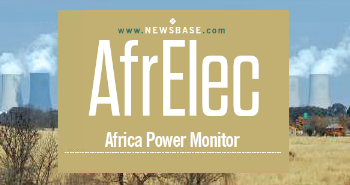Final COP28 agreement is a cop-out
_(2)_Cropped.jpg)
The final COP28 agreement calls for a transition away from fossil fuels and a trebling of renewables. The headline-grabbing deal came after days of bitter negotiations over the role of fossil fuels and was hailed as “historic”. But in the end it seems that the fossil fuel lobby won.
Simply put, the final draft of the so-called ‘global stocktake’ avoided calling for a “fossil fuel phase-out”, although it was “historic” in that it was the first COP deal that specifically calls on all countries to “transition away” from fossil fuels.
But the agreement was replete with woolly feel-good phrases – the “[t]ransitioning away from fossil fuels in energy systems, in a just, orderly and equitable manner, accelerating action in this critical decade, so as to achieve net zero by 2050 in keeping with the science”.
The agreement also called for “accelerating efforts towards the phase-down of unabated coal power”, and using “abatement and removal technologies…particularly in hard-to-abate sectors”.
It was deeply disappointing for the fight against the climate crisis.
A “phase-down” of unabated coal is not a “phase-out”. And “unabated” means that fossil fuels will continue to be burned, with emissions buried or sucked out of the air by a technology that is currently prohibitively expensive and unproven at commercial scale.
The Alliance of Small Island States described the draft of the final COP28 text, which was adopted, as "a litany of loopholes".
The AOSIS – whose islands and their cultures will be the first to be wiped out by climate change – added: “The text does not speak specifically to fossil fuel phase-out and mitigation in a way that is in fact 'the step change that is needed'."
The alliance concluded: "It is incremental and not transformational."
Critics said what else was to be expected when the UN’s annual COP talks, the most important climate meet globally, are held in an oil state, the UAE, and when the president is an oil man – Sultan al-Jaber – whose team had cynically talked of using the conference to strike oil and gas deals?
Mike David, the CEO of the non-governmental organisation Global Witness, said the agreement actually means more fossil fuels, which most oil and gas-producing countries and heavy coal users are seeking.
A major new UN report published in early December indeed had found that governments plan to produce about 110% more fossil fuels in 2030 than would be consistent with limiting warming to 1.5°C – the Paris Agreement goal – and 69% more than would be consistent with 2°C.
The UAE’s own moves are emblematic. It has emerged that Abu Dhabi National Oil Co. (ADNOC), of which al-Jaber is head, plans to boost its oil output up to 5mn barrels per day (bpd) of crude, reported Associated Press (AP).
Global Witness’ David continued: “We should be realistic about what the failure to agree to [a] phase-out means: fossil fuels forever. This agreement sends a signal to those thousands of lobbyists who gathered at COP – there is a long and profitable future for their destructive businesses, regardless of what the science tells us.”
He concluded: “Serious climate action means no loopholes, no reliance on unproven technology and an immediate phase-out, with massive financial support for the transition from the richest countries and from big polluters.”
Yet as delegates left Dubai, on December 13, the deal signed by nearly 200 countries was hailed as “historic” by Peter Liese, chair of the EU delegation of leading negotiators.
For his part, Denmark's Minister for Climate and Energy Dan Jorgensen added: "We're standing here in an oil country, surrounded by oil countries, and we made the decision saying let's move away from oil and gas."
“I have to say that the people that [have been] criticising Dr. Sultan and the UAE owe them an apology,” he said. “They have been a transparent and inclusive presidency.”
Al-Jaber commented: “We have language on fossil fuels in our final agreement for the first time ever” and the deal is “a paradigm shift that has the potential to redefine our economies”.
And John Kerry, US climate envoy, said: "I am in awe of the spirit of cooperation that has brought everybody together." This was although Kerry had previously told reporters in Dubai: "The first and easiest thing that countries need to do to make this commitment real is to stop building new unabated coal, and we will continue to fight for that."
The exact words such leaders use are of course vital, and a good example of the diplomatese always rampant at such conferences. Much of the media missed the loopholes in the final agreement, which calls for a phase-down of unabated coal – not a phase-out. A cop-out at COP 28.
For example, it was Kerry’s use of that pesky word “new”. Coal plants are not to be closed down, and in some countries, such as China, they are still being built frequently. To stick to the COP28 agreement, new coal plants will just be modernised with technology that may or may not come to fruition.
That being said, Kerry did criticise the final agreement. “Many people here would have liked clearer language about the need to begin peaking and reducing fossil fuels in this critical decade,” he conceded to delegates. “But we know this was a compromise between many parties.”
Others were less diplomatic.
“Let’s be real,” wrote climate activist and author Auden Schendler in the New York Times as the summit closed. “The summit’s proposals for voluntary commitments – on methane, on renewables, on phasing out fossil fuels – were theatre. Imagine if in the 1960s Americans had responded to the civil rights movement not with legislation but with calls to please treat one another nicely.”
Or as Alden Meyer, a senior associate at the think-tank E3G who has attended global climate talks since they first started in 1991, told AP. “The [Earth’s] atmosphere responds to one thing: emissions. It’s physics, stupid. And all the declarations, all the decisions, all the platitudes, all the announcements in the world, if it doesn’t translate into real world action that reduces emissions, is not worth the paper it’s written on.”
Maybe it is no surprise that next year COP 29 will be held in Azerbaijan, another oil economy.





Follow us online